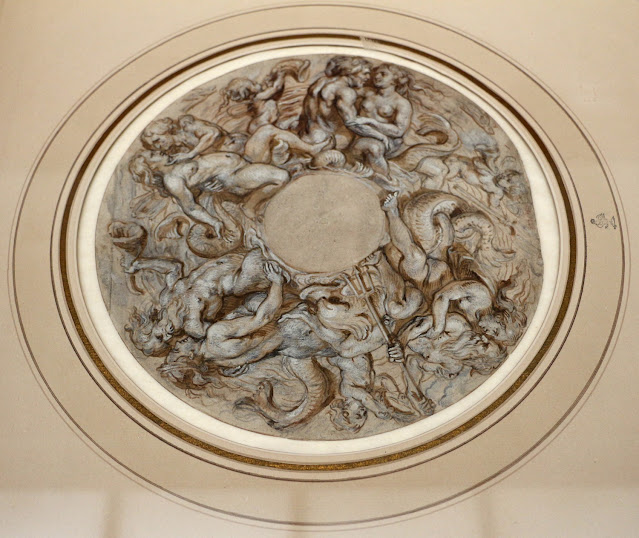 |
| Abraham van Diepenbeeck Martyrdom of St Sebastian 1636 oil on panel private collection |
 |
| Abraham van Diepenbeeck The Crucifixion before 1660 oil on panel Fitzwilliam Museum, Cambridge |
 |
| Abraham van Diepenbeeck The Crucifixion before 1660 oil on panel private collection |
 |
| Abraham van Diepenbeeck after Peter Paul Rubens Cloelia crossing the Tiber ca. 1635 oil on canvas Musée du Louvre |
 |
| attributed to Abraham van Diepenbeeck Mercury entrusting the infant Bacchus to the Nymphs before 1660 oil on canvas private collection |
 |
| Abraham van Diepenbeeck The Flight into Egypt ca. 1640-60 oil on panel Art Institute of Chicago |
 |
| attributed to Abraham van Diepenbeeck The Deposition ca. 1645 oil on paper, mounted on panel Los Angeles County Museum of Art |
 |
| Abraham van Diepenbeeck The Lamentation before 1660 oil on panel private collection |
 |
| Abraham van Diepenbeeck Death of St Anthony Abbot before 1660 oil on panel Royal Collection, Great Britain |
 |
| Abraham van Diepenbeeck Enthroned Virgin bestowing the Rosary on a Supplicant before 1675 drawing National Gallery of Art, Washington DC |
 |
| Abraham van Diepenbeeck Judgment of Solomon before 1675 drawing Art Institute of Chicago |
 |
| Abraham van Diepenbeeck Resurrection of the Dead before 1675 drawing Art Institute of Chicago |
 |
| Abraham van Diepenbeeck Four Crowned Martyrs ca. 1640-50 drawing Groeningemuseum, Bruges |
 |
| Abraham van Diepenbeeck St Paul dictating at Ephesus before 1675 drawing Metropolitan Museum of Art, New York |
 |
| Abraham van Diepenbeeck Neptune and Amphitrite (design for embossing a basin) before 1675 drawing private collection |
Abraham van Diepenbeeck (1596-1675) served as a favored assistant in the Antwerp studio of Peter Paul Rubens from the mid-1620s to the late 1630s, then establishing himself as a Free Master in the local guild of Saint Luke. Although van Diepenbeeck did independently undertake a limited number of complex baroque narrative paintings on the model of Rubens, more of his time and energy as an independent artist went into designs for tapestries, ornaments, monuments, prints, illustrations, and paintings executed by others.